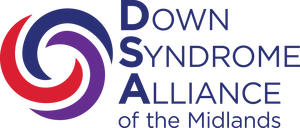
What is Down syndrome?
Down syndrome is a genetic condition that results when a baby is born with three rather than the usual two copies of chromosome 21. Because there are three copies of chromosome 21, Down syndrome is also called Trisomy 21. Trisomy 21 is the most common type of Down syndrome, however, there are 3 types of Down syndrome - Trisomy 21, Translocation, and Mosaicism.
What is the frequency of Down syndrome?
Down syndrome is the most frequently occurring chromosomal abnormality, occurring once in every 792 live births.
How many people have Down syndrome?
It is estimated that 250,000 people in the United States and about 4 million people worldwide have Down syndrome.
Does Down syndrome occur in specific types of people?
Down syndrome occurs equally in people of all ethnic, racial, religious, and socioeconomic groups.
Is age a factor in Down syndrome?
The rate of births of children with Down syndrome increases with the age of the mother. While the age of the mother can be a factor, 80 percent of children with Down syndrome are born to parents under the age of 35.
Are people with Down syndrome at increased risk for certain medical conditions?
Yes, people with Down syndrome have increased health risks.
- Approximately 40 to 60 percent of infants with Down syndrome have a congenital heart defect.
- Low muscle tone is common in people with Down syndrome. This may result in delayed gross motor development like crawling and walking.
- Those with Down syndrome are at greater risk for childhood leukemia, sleep apnea, thyroid conditions, Alzheimer’s disease, and diabetes. Many of these conditions are treatable, and most people with Down syndrome lead healthy lives.

Proper use of language for Down syndrome
Down vs. Down’s –In the United States, the preferred spelling is Down syndrome, rather than Down’s syndrome. The “apostrophe 's” connotes ownership or possession. Down syndrome is named for the English physician John Langdon Down, who characterized the condition but did not have it.
People with Down syndrome should always be referred to as people first. Instead of “a Down syndrome baby”, it should be “a baby with Down syndrome”. Also, avoid “Down’s baby” and describing the condition as “Down’s” as in, “He has Down’s”.
Down syndrome is a condition or a syndrome, not a disease.
People “have” Down syndrome, they do not “suffer from” and are not “afflicted by” it.
“Mental retardation” is no longer an acceptable medical term and has been replaced with “Intellectual disability”. Broadly, at a national, state and local level, the use of the word “retarded” is considered unacceptable, inappropriate language. Using this word is hurtful and suggests that people with disabilities are not competent.
